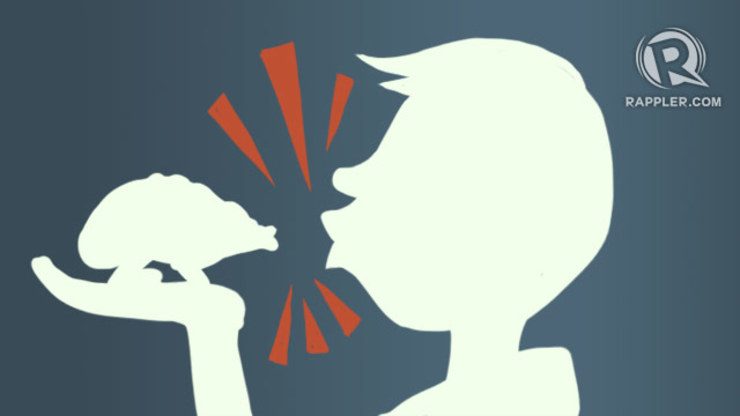SUMMARY
This is AI generated summarization, which may have errors. For context, always refer to the full article.

Procrastination is the habit of putting tasks off for later – mamaya na. It is a practice where we carry out less urgent tasks or pleasurable things in preference to more critical or less desirable tasks.
Working in the corporate world for over seven years now, I myself am not resistant to this. In my field as an advisory consultant / auditor, procrastination can really become an annoying habit if the impulse to do so is not being controlled and addressed.
Stress, lifestyle, poor time management and distractions from everywhere, including technology, can be the ultimate culprit.
Here’s a list of six suggested ways, and my personal take, on how to overcome the urge to procrastinate:
1. As they say, “kiss the frog.” Nah, we’re not talking about fairy tales here. Do the tasks now and do it quickly. Don’t spend too much time waiting for the handsome prince! The longer you look at the frog, the uglier – and slimier – it gets. We tend to prioritize on the simpler, prettier tasks that we end up forgetting about the monstrous, dirtier ones.
I remember my senior manager, who has ‘kissed a lot of frogs’ already. I call her Miss Proactive as she typically attacks her tasks upfront, without thinking of delaying the tasks most of the time, and slays the dragon on the spot.
2. Have more fun and reward yourself. When stressed out, we need to allot time for play. As Benjamin Franklin put it, the optimal strategy for high productivity is to split our days into one-third work, one-third play and one-third rest.

People are more productive when they have abundant time to play. You can also adopt a reward system, where every time you finish an important task, you reward yourself with a break, movie date, or as simple as a quick run to the nearest cupcake shop.
Dr. Neil Fiore, a psychologist and author, suggests that making time for guaranteed fun can be an effective way to overcome procrastination. You can decide in advance what blocks of time you’ll allocate each week to family time, workout, social activities and hobbies. Then schedule your work hours using whatever time is left.
This can reduce the urge to put off tasks because you work will not meddle in your leisure time, so you don’t have to procrastinate on work to have a relaxing and enjoyable life.
3. Meditate and do a self-assessment. Meditation can prevent stress that causes the urge to procrastinate, and relieves accumulated stress that’s in the body. One old theory is that meditation is like exercise: it trains the brain as if it’s a chunk of muscle. You work those muscles out and they get stronger as time goes by. (READ: Meditation made fast and simple)

One paper in the journal Psychological Science tries to identify whether brain functions are actually enhanced by meditating. The study was led by researchers from the University of California, Davis. The subjects were composed of 60 individuals who signed up to attend a three-month meditation retreat. The study shows that intensive meditation can help people focus their attention and sustain it — even during the most boring of tasks.
Understanding why you’re doing what you do helps you better understand yourself. Is the task at hand too hard to follow and swallow? What is keeping you from finishing a task? Once you’ve identified why you’ve put something off, you can break the cycle and prevent future instances of procrastination. (READ: Meditation can spark compassion)
4. Set deadlines and avoid multitasking. Start by creating a to-do list of the things you would like to accomplish on a given day, week or month. After that, put target dates next to each item. Estimate how long the task will take to complete.

You may also want to double the time you allotted to make sure they are foolproof and you have no reason to delay anything. You may also set up reminder emails or alerts on your phone or computer to help remind yourself of any upcoming deadlines.
Breaking down large tasks into smaller ones will also help lessen the burden and impact of the tasks on you. Discipline plays a big part on this exercise. Unless you want to continue living in the dark, distressful life, make a conscious effort to adhere to this step.
Multitasking also plays a huge part as to why we’re procrastinating. As they say, it’s multi-crastination! When you do multiple things all at once, it’s really hard to focus and it will definitely have an impact on the quality of your work.
If you’re in the “war zone” for a report that you need to finish before end of day, just focus your energy into it. Block off your schedule for the day so no one will attempt to bother you. While emails will definitely come to your inbox whether you like it or not, you have the decision not to be distracted by them.
Sometimes, I am guilty of immediately stopping what I was doing in favor of an “urgent” email that needs to be addressed. While the recipient would be ecstatic for your timely response, your own tasks might suffer. Learn how to work smart, as multitasking is not usually the way.
5. Be organized and get in the habit. I enjoy working when I know there are no open, urgent tasks popping up in my head. Sometimes, it’s hard to focus when you know someone is about to follow up on you, or that one task has been buried six feet under the ground and you haven’t gotten to it yet.

First, organizing your thoughts will help. The night before a work day, try to think of the tasks you should aim to address and work on the following day. Second, try to think of the tasks on your to-do list, especially those that are approaching your set deadlines.
Once you’ve put together a clear frame of mind, you already set the tone for your tomorrow’s work. I feel good every time I do this as it is as if I had already planned my whole day and everything is set to work as is.
However, and the third point, you also need to consider the unaccounted tasks, or the so-called emergency tasks, as these will impact the tasks you have in mind. Be flexible and try to incorporate an allowance to your action plan for the day to avoid ending up putting off some tasks to some other days instead (i.e., domino effect).
There are immediate benefits when you start getting things done right away, and it’s a habit you can cultivate. Also, make it a habit to monitor the progress of the tasks to see how well you’re doing and how you can further improve yourself.
6. Create an audience and involve others. Okay, you don’t care a lot if you fail to accomplish a task. That’s given. How about involving your colleague, your friend, or your personal mentor in your quest to getting things done?

Make yourself accountable to others and suddenly a potential embarrassment for not completing a task becomes a powerful motivator.
This is like having a gym buddy or instructor to look over your shoulder.You tend to show off and finish a rep albeit you’re almost dying from that routine. The fear of letting someone down might be a tremendous motivator. So call a friend now and have him / her check in for you and let the fear of embarrassment do its black magic.
Breaking the habit of procrastination is not a walk in the park. The urge to put things off can be very strong, due to a lot of distractions and personal reasons.
While addictive escapism might not be something we can totally avoid, becoming cognizant of the reasons why we procrastinate and how to overcome those tendencies might help. Start trying the above-mentioned strategies as you deem fit and live a less stressful lifestyle. – Rappler.com
 Mark John L. Bojocan currently works for a Big Four accounting firm as an advisory manager based in Los Angeles, CA. He is a CPA in the Philippines and previously worked at SGV & Co. before relocating to the United States in 2011. Outside of work, he is busy leading a nonprofit professional organization, International Society of Filipinos in Finance and Accounting (ISFFA) – Los Angeles Chapter, where he serves as president.
Mark John L. Bojocan currently works for a Big Four accounting firm as an advisory manager based in Los Angeles, CA. He is a CPA in the Philippines and previously worked at SGV & Co. before relocating to the United States in 2011. Outside of work, he is busy leading a nonprofit professional organization, International Society of Filipinos in Finance and Accounting (ISFFA) – Los Angeles Chapter, where he serves as president.
Add a comment
How does this make you feel?
There are no comments yet. Add your comment to start the conversation.